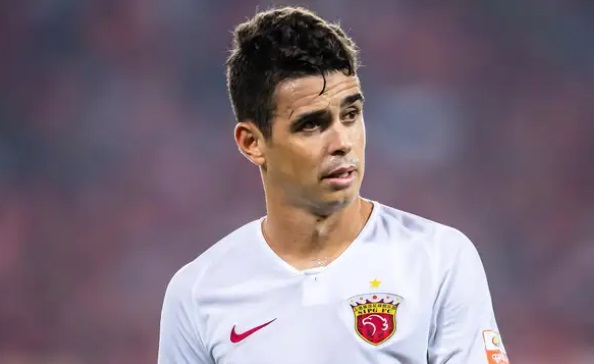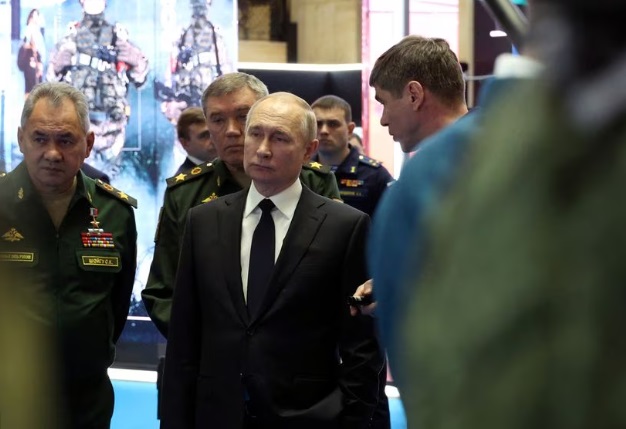Cristiano Ronaldo always insisted that other stars would follow him to Saudi Arabia – and he’s been proven right, with Karim Benzema and N’Golo Kante having just joined Al-Ittihad. The Saudi Pro League’s most interesting acquisition to date, though, is that of Ruben Neves.
Unlike Ronaldo, Benzema and Kante, Neves is not a serial winner – but nor is he injury-riddled or well past his prime. On the contrary, he is young, healthy and still has his best years ahead of him.
So, at a time when the Pro League is being compared to the Chinese Super League because of the way in which it has shaken up the world of football with one money-spinning transfer after another, Neves is essentially playing the role of Oscar.
In reality, though, the Brazilian’s move from Chelsea to Shanghai SIPG in January 2017 was far more surprising. Indeed, Oscar’s decision to turn his back on the European game at the age of 25 didn’t just shock people, it upset them.
‘If you haven’t got passion, it’s no good’
While then-Chelsea team-mate and fellow Brazil international Willian argued that ever player is entitled to make as much money as possible during what is a short and precarious professional career, Blues boss Antonio Conte effectively questioned Oscar’s character and love of the game. “Passion must come before money – that is the most important thing for us: the passion for football,” the Italian told reporters at the time. “If you have not got that, it is no good. No good.”
Former England defender Jamie Carragher, who spent his entire professional career at Liverpool, went even further. “This is not a move to further his career,” Carragher wrote in the Daily Mail. “He will talk about the league growing in China, the chance to work with Andre Villas-Boas and the excitement about a new adventure – but we all know those words will be nonsense.
“He has gone for the size of the contract. Nothing else. Players used to look for a pay day in their mid-thirties when their career was coming to an end. We all understood that… But it is embarrassing that a player would give up his career, and the chance to compete for the biggest prizes in the game, just for money.”
Carragher’s outrage was somewhat understandable because Oscar was the kind of player that neutrals enjoyed watching: he was small, skilful and scored spectacular goals. And not only that, he worked his socks off, which is why former Chelsea boss Jose Mourinho loved him so much.
At the time of his transfer to China, his career had undeniably stagnated at Stamford Bridge, not least because of the Portuguese manager’s departure, but there’s no getting away from the fact that Oscar was a truly special talent.
He had been the star of the outrageously gifted Brazil side that won the 2011 FIFA Under-20 World Cup, scoring a hat-trick in the 3-2 win over Portugal in the final, and then announced himself as a potential superstar of the future by scoring a stunning goal in just his second start for Chelsea, in September 2012, in a Champions League clash with Juventus.
‘Offers players can’t refuse’
The thing was, though, Oscar never really hid the fact that his transfer was motivated almost solely by money. He had lost his regular starting spot at Chelsea, but Atletico Madrid boss Diego Simeone was offering him regular game time, while Juventus, Inter and AC Milan were also interested in bringing him to Serie A.
Oscar, though, felt that he just could not pass up the opportunity to set his family up for life. “China has incredible financial power and sometimes makes offers that players can’t refuse,” he confessed in a video made by Copa90 and Rabon. “Every football player, or every person who works, wants to earn money to help their families. I came from a social background in Brazil that is very poor. We didn’t have anything. This is the fruit of my labour.”
And he certainly reaped ample rewards, having initially penned a four-year contract worth a reported £400,000-per-week before securing a pay-rise after signing an extension in 2019 – crucially, just before the CSL introduced a salary cap.
It would be a stretch to say that Oscar proved value for money, but as well as becoming the face of the club, he did play a pivotal role in Shanghai winning the league in 2018, and the cup the following year, scoring 30 goals in all competitions across those two seasons.
He’s also one of the main reasons why Javier Pereira’s team are top of the table after 13 rounds of the current campaign, too.
The CSL boom and bust
However, Oscar is also one of the few remaining high-profile players in the Chinese Super League, which was decimated by the effects of the pandemic. Of course, the money was drying up before the outbreak of the coronavirus, with the Chinese government introducing what amounted to a tax on overseas signings due to the fact that some foreigners were treating their transfers “like a holiday”, as Carlos Tevez put it, as well as a concern that their presence was actually hindering, rather than helping, develop domestic talent.
The de-corporatisation of club names also made CSL sides less attractive to local companies, who then lost all interest in investing in football once they saw their profits plummet during the pandemic.
So, why is Oscar still in China? Why didn’t he follow the likes of Hulk, Alex Teixeira and Jackson Martinez out the door? Well, it wasn’t for the want of trying.
‘More complicated for me to get out’
As far back as 2020, Brazil team-mates David Luiz and Willian were begging Oscar to join them at Arsenal, but as he explained at the time, he had effectively bound himself to Shanghai until 2024 with that aforementioned extension.
“I really want to go back to Europe,” he told Fox Sports Brasil. “[But] not now. At the moment I’m well here in China, I still have my contract here, which I hope to fulfil. The situation is difficult for me in terms of returning [to Europe]. It’s a little more complicated for me to get out of here [because of the contract]. So I hope to fulfil my contract here calmly and then, yes, I think about going back to Europe.”
Which had been the plan all along. Even during his first year in China, Oscar repeatedly pointed out that by the time his (original) contract expired, he would still be young enough to play for an elite European team, with his obvious preference to rejoin Chelsea.
Even when he spoke to GOAL in 2021, he was adamant that he was still playing well enough to ensure that when he was finally free to leave Shanghai, he would have many “doors” open to him. However, they’ve nearly all been slammed shut.
‘Oscar wants to play for Flamengo’
Oscar spoke optimistically about joining Barcelona in January 2022, admitting that he would be willing to take a massive pay-cut to join the cash-strapped Catalans, but Shanghai refused to even entertain a loan deal as they were, rather understandably, uncomfortable with the idea of continuing to pay him a massive wage while he lined out for another club.
Even greater frustration followed in August, when Flamengo tried to bring Oscar back to Brazil. “I’m going to try to sign him until the last possible minute,” the club’s vice-president of football, Marcos Braz, told Lance. “He wants to play for Flamengo and we would like to have him here.”
Indeed, Oscar was so keen that he even took photos of himself in the club’s famous red-and-black shirt. In the end, though, he was forced to admit defeat in his bid to return home.
“I would like to thank everyone for the affection and messages received in the last month, especially from all Flamengo fans,” Oscar wrote on Twitter. “I appreciate the interest of Flamengo and the fans, but it was not possible to do so at that moment.”
Was sacrificing his career worth the reward?
As a result, it now seems likely that Oscar will have to see out his contract. Of course, that means he could end up leaving China as a two-time title winner, and one of the best-paid footballers in the world over the past six years. Neither he nor his family will ever have to work again.
Was giving up his prime years a sacrifice worth making, then? Should he regret a move that ended all hope of him ever playing for his country again? The likes of Carragher and Willian will obviously have contrasting views on that particular topic.
As Oscar said himself, “Whatever decision I make, somebody will talk good or bad about it.” But he also admitted all the way back in 2017 that “what I like most is to play at a high level.”
So, it’s hard not to feel a little sad, even just from a selfish purists’ perspective, that he hasn’t done so for six years – and likely never will again. Source: goal.com







